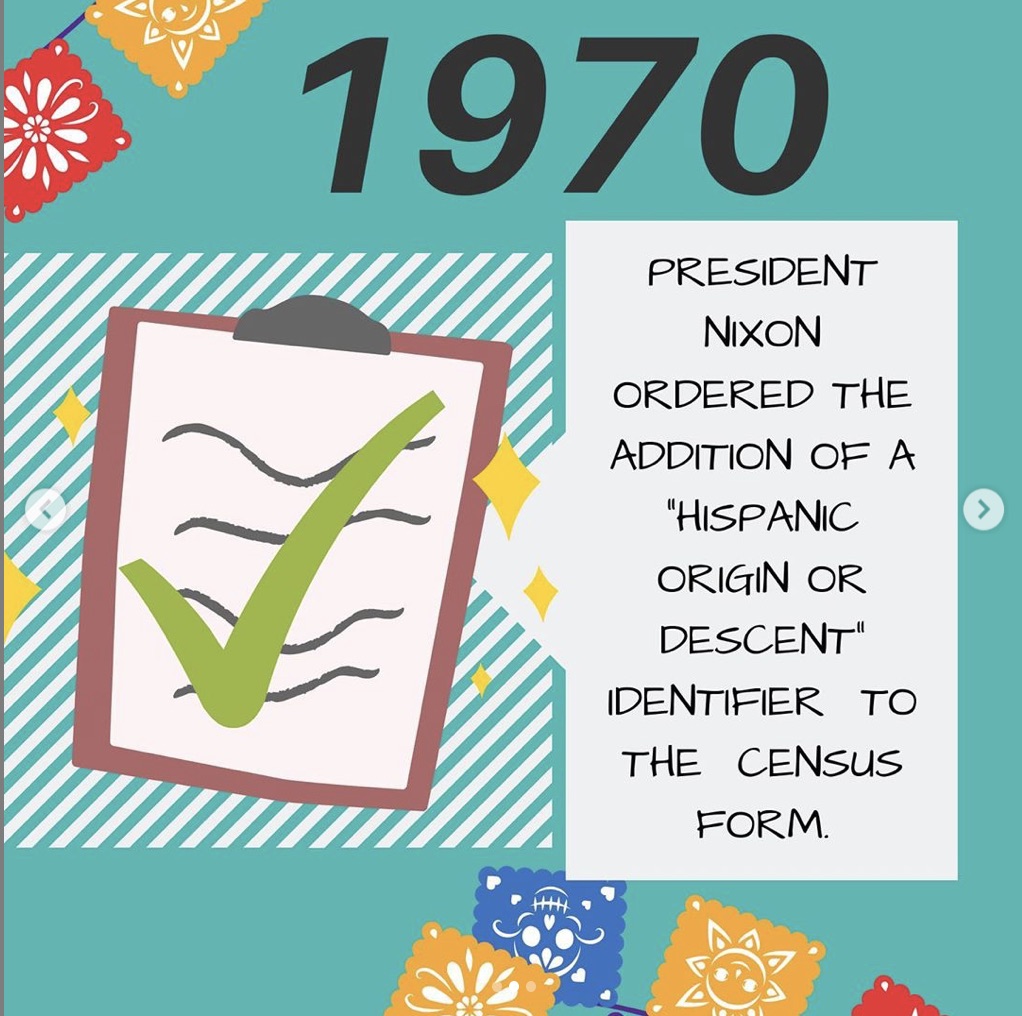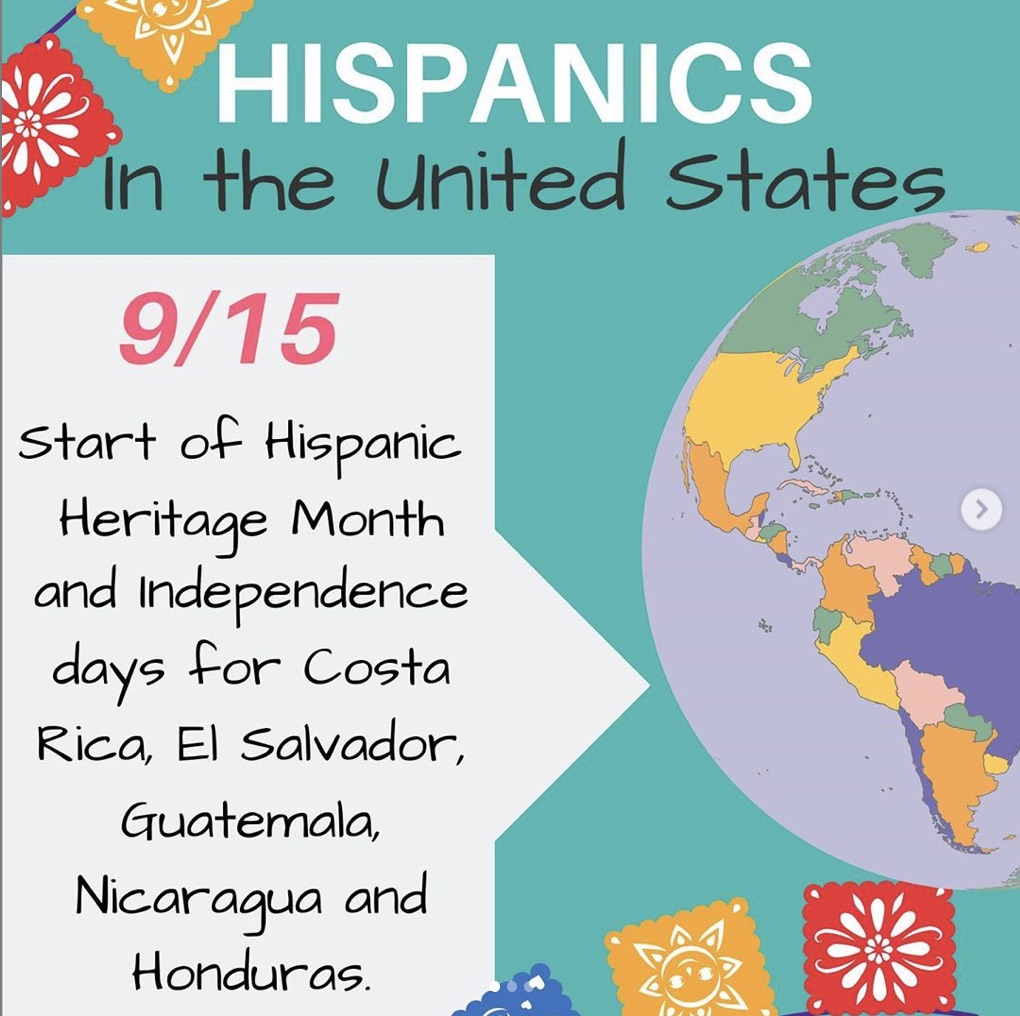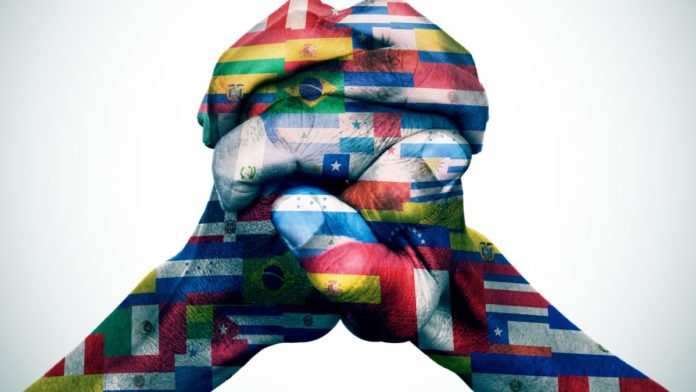Reprising its appearance for the 31st time, Hispanic Heritage Month begins mid-month, on September 15th, and overflows into October, ending on the 15th. Designed to commemorate the contributions made to culture and science in the U.S. by Latinos, some of its critics find this timing awkward. Others object to the use of the word “Hispanic”, a term they find dated and over-generalizing, reductive of the Latin American experience to its colonial relationship with Spain via the yoke of the language imposed. Many take issue, too, with the vast distance between the optimistic rhetoric of the memorial month and the difficult reality of being Latino in the U.S. today. These observations raise the question whether an artifact of pre-millennial diversity still has a place in our calendar.
Historically, there has been a need to recognize the role that Latin American immigrants and their descendants have played in the evolution of the United States as a nation. By the 1970s, once it had become customary to keep records, it was evident that Latin Americans had generously contributed to the U.S. war effort in both world wars, Korea, and beyond, with a Boricua squadron heroically so during some difficult missions in Vietnam.

Evidently, Latins had enlisted with the U.S. since the Colonies’ revolutionary effort against Britain, which is not entirely surprising when we realize that westward expansion siphoned just under one-third of our total landmass from what was México. Much of the population of those present-day states is still Mexican and Central American and throughout the intermittent decades, a great many have enlisted in service to their country.
As Manifest Destiny took the western border of the new nation all the way to the coast of California and the southern one to Texas, imagine how many Latins pitched in to grow, build, and set up this country. We have records of our servicemen and women though not for our railroad workers, miners, cooks, and other laborers, eventually performers and business owners. These histories and our thirst to find out more and be inspired in our own lives might have remained buried, were it not for a convenient opportunity to unearth them, a yearly reminder we’ve been here long. This was the idea behind having a week each year to observe with respect the accomplishments of individuals within the Latin community.
In 1968, President Lyndon B. Johnson signed Hispanic History Week into law. The intention was to utilize a week to showcase noteworthy people, whose families hail from Spain, Central and South America, México, and the Caribbean, and who have improved their respective field in the U.S. Yes, Spain is included in the list and I recognize that just like the old song on Sesame Street, one of those is not like the others. A former European colonial power is not in the same basket as its former colonies, but the Latin American who first requested more time to celebrate our accomplishments wanted to include more people with Spanish language and Latin culture backgrounds, not less.
In 1987, after nearly 20 years of packing all of the festivities into a single week, Arizona-born, eight-term House of Representatives seat-holder Esteban Torres wrote a bill in which he requested a full month to honor Hispanic Heritage. Latin people have added so much to the arts, sports, business world, and sciences, Torres argued, we would need more time to highlight their achievements.
Torres suggested a Hispanic Heritage month but the bill he introduced didn’t pass. This didn’t stop Torres from serving in Congress for another 12 years, pushing anti-poverty legislation, just a loyal to the nation and ready to serve as when he served in Korea. Thanks to the ball he got rolling, we have plenty of time now — a whole month — to mention that his contributions have continued even after retirement. Torres has enjoyed a career as a painter and sculptor, talents he honed when he used his G.I. Bill to study art at university.
It was a year later when fellow Democrat, Paul Simon, sponsored a similar piece of legislation to extend the honorific, that the week became a month. This time, the suggestion was signed into law by Ronald Reagan and, in 1988, Hispanic Heritage Month was officially adopted.
Does it raise an eyebrow that coming from someone named Simon the petition sat differently in the floor of the Congress than when it came from someone named Torres? Sure. But President Reagan’s remarks during the inauguration of a previous Heritage Week mention his time as Governor of California, which gave him ample experience with Hispanic contributions to American culture and economy. It may have taken an ally to bring the legislation through, but it is important to note that the idea came from a Latino.
In this 1982 address, Reagan gives many examples of the contributions Latins have made to American history, offering examples of military loyalty and hard work by what already amounted to thousands of immigrants. His rhetoric includes mention of shared values and the American government’s vow to strengthen them in order to, and this took my breath away, “make America great again”.
This moment (around the 5:46 mark) indicates that the general approach towards immigration was different back then, and despite systemic racism still in place, Reagan does a great job of transmitting a cooperative and compassionate vibe in his public comments. He may use the excuse of shared family values as an opportunity to segue into bringing prayer into schools and pandering to his base, but it is remarkable and sad that the President’s positive comments about our demographic seem so jarring now, given our current situation. Perhaps by 1988, Reagan was just finally convinced that our various cultures required a whole month, while in 1982 he still did not realize just how pervasive the Latin influence was and America’s need for an optimistic and inclusive government.
By this metric, we need Hispanic Heritage Month today more than we did in 1982, when Reagan had no problem reciting the accomplishments of Hispanics. In fact, in 2019 the organization devoted to deciding on the general theme of each memorial month has returned to the same evidence Reagan cited in his remarks, listing off great Hispanic-American who worked in areas of service to their country. From singer Joan Baez to astronaut Ellen Ochoa to Supreme Court Justice Sonia Sotomayor, our prominent Latinas’ contributions are highlighted to an audience struggling to hear them over the din of ICE raids and overcrowded detention centers.
Those of us who reject the need for Hispanic Heritage Month because we feel we don’t need the positive reinforcement that it’s like preaching to the choir, are perhaps obscuring the educational potential of heritage festivals like this one. Perhaps we are not ignorant of our communities’ heroes, but people outside of our communities might be. Another way of saying this is that while Esteban Torres did not require convincing to promote the month, Ronald Reagan did. Providing him the evidence he needed to make up his mind brought the change.
Now, our numbers are different now than in the 1980s, that’s true. With more of us in the U.S., the expectation would be that there is greater tolerance of, not to mention understanding and celebration of our varied cultures. I would argue that perhaps more of us are educated about the existence of Latin Americans, we are also much more prone to being victimized by the negative, slanderous discourse of the right-wing right now. So long as we can have an increase in the dissemination of truthful and positive messaging, something to counter the current administration’s double-speak, a Heritage Month is a good vehicle for media coverage.
One great use of the platform is to tease out the differences and variations between the many cultures that comprise this Pan-Latin approach to celebrating Hispanic Heritage Month. Reducing an entire continent of people with diverse histories and trajectories to a singular umbrella is a necessary evil in having to pan out from the population far enough to broach us all. The erasure of ethnic, national, and cultural borders happens as a result of being lumped together to be celebrated, protected, legislated for. We might know well that our Boricua friend’s nochebuena celebration is nothing like our Cuban friend’s, or that the side of our family that is peruana cooks completely different dishes than the ticos, but many people don’t.
Some critics say this erasure of idiosyncrasies is a result of constructs like Hispanic Heritage Month, which allows people to hear about Latinos but not actually change anything about their mindset, or of umbrella terms like “Hispanic.” But leaving aside the knee-jerk notion that a label originally used by the government is bad, we have to recognize that it might be the most effective.
In this case, it is also true: one of the only things that the majority of Latinos have in common between our various cultures is that our families come from places that were once victimized by Spain. For a good number of us, we can communicate in the common language of Spanish. This is a common thread of experience, of social phenomena, and often language as well. Rather than resenting the mention of the former colonizer why not take into account the context? Our countries were “hispanicized” by force. Part of the Latino experience is to be conscious of our Hispanic background, which, though uninvited, is an integral part of our foundational narrative.
To me, “Hispanic” contains that double exile: first, from our own native cultures by the language and religion imposed on us; second, to the U.S. It carries the ghosts of hushed languages when the Crown’s was given the megaphone. “Hispanic” holds inside itself the violence that took our gold, the bloodshed of our heroes, the histories of empires brought down too soon. Yes, the word is unwieldy, messy, even stained, but precisely for its ability to imply all of this struggle, all of this meaning, it’s a word we can use like a crowbar to open up spaces for clarification.
I might not identify as Hispanic, but I don’t mind it for the purposes of Heritage Month. The leadenness of the word alone is a good way to tap into preconceived notions and contexts, propitious ways to shift our country’s collective mindset. Perhaps we don’t need to have the nomenclature debate with one another but instead with people outside our communities, filling in the blanks about our individual cultures as a way of explaining the insufficiency of the word to account for us all. We appreciate the usefulness of the term as something that brings our communities together in the shared experience.

While these exchanges might not make an immediate difference at the level of government, they can invade the workplace and our schools, move us away from conversations about words, which are neither good nor bad in themselves, and toward deeper topics like what we mean when we say them. In this age of globalization, my ability to speak to a méxicana in Spanish doesn’t erase her Nahuatl as much as it highlights my lack of an indigenous tongue. Having a common linguistic bridge, though, makes her experience accessible to me and Hispanic Heritage Week gives us a good reason to discuss these identity issues with one another.
Even the odd placement of the celebration in-between months adds to its polemical potential, making it a great reason to start a conversation. Last night, my son walked in as I was working on this piece and asked what it was about. I told him and he asked to know the dates we will celebrate Hispanic Heritage Week. “Why would they start it on the 15th of September? That’s so weird.” I laughed and told him that some people agreed with him. Then I explained that the decision was made in order to encompass the independence day celebrations on the 15th, 16th and 18th of the month in México, Guatemala, Costa Rica, El Salvador, Nicaragua, Honduras, and Chile and also el día de la raza on October 12th. He shrugged and said, “at least it stands out.”
For Image credit or remove please email for immediate removal - info@belatina.com






































